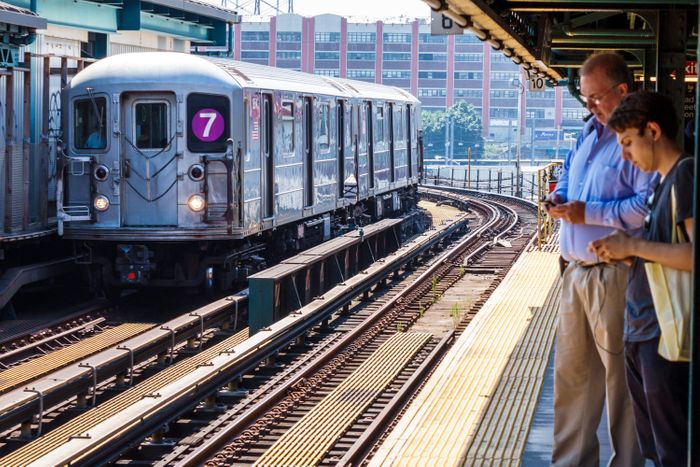
Everyone’s eyes remain stapled to Twitter and cable news waiting for the actual call from the big networks, but it’s getting harder by the minute to deny that Joe Biden will become the 46th President of the United States. To say this is welcome news is an understatement—and it is especially so for the Metropolitan Transit Authority, which has been hemorrhaging money since March when the pandemic caused ridership to plummet. Its hopes of a desperately needed federal bailout for the MTA now shift to an increasingly unlikely scenario: Democrats winning the Senate, which would require winning two Georgia run-off elections in January.
The MTA is facing a $16.2 billion deficit through 2024, and has requested $12 billion in federal aid. Without that cash, the agency says it will resort to reduced service, increase fares, and put an indefinite hold on projects such as the Pennsylvania Station rehab and extending the Second Avenue line into Harlem. Losses related to COVID drained away nearly half of the MTA’s total 2020 budget, according to a June report, and with the end of the pandemic nowhere in sight, the crisis gets worse every day that empty train cars continue to roll beneath the city. The MTA needs saving, but now who will be its savior?
The agency did receive $4 billion in aid from the CARES Act stimulus package passed in March, which reduced this year’s losses from 45.3 percent to 21.9. Much more could come from the $32 billion in transit aid included in the $3 trillion followup stimulus package that passed the House in May (with another round of stimulus checks and enhanced unemployment benefits added in September). But Republican Senators refused to take up the bill and punted the issue to after the election, despite efforts by Treasury Secretary Steve Mnuchin to broker a deal with House Speaker Nancy Pelosi directly.
Without a Democratic majority to pass a stimulus or even Trump signing a second bill following a narrow election victory, divided government is likely not a great outcome for the MTA. Senate Majority Leader Mitch McConnell signaled this week that he’d like to get a stimulus passed before the end of the year, during the lame duck when he’ll have whatever extra leverage comes from Trump still being in office. But he also said Friday that he thinks it should be “tiny in scope.” Even the $1.6 trillion stimulus Mnuchin proposed as a counter to the HEROES Act did not contain aid for transit (and House Democrats did not take him up on that offer).
While we wait to see how the new government shakes out, the situation is getting worse. Subway ridership is still down 60 to 70 percent each week relative to 2019, and half of the MTA’s revenue comes from subway fares, tolls, and other rider fees. But that’s not the only source of cash that’s taken a hit: Taxes dedicated to MTA funding are down too, including a tax on mortgage originations, which fell off when the housing market was put on pause in the spring. The MTA receives subsidies from the city and the state, but it’s not nearly enough to fill the hole—and the state is similarly short of cash this year as well. Without a solution, the MTA warns that cuts to services could affect riders for the next decade, and given the subway is the economic engine of New York City, the fallout could be much broader than having to wait 5 extra minutes for your train to arrive.




